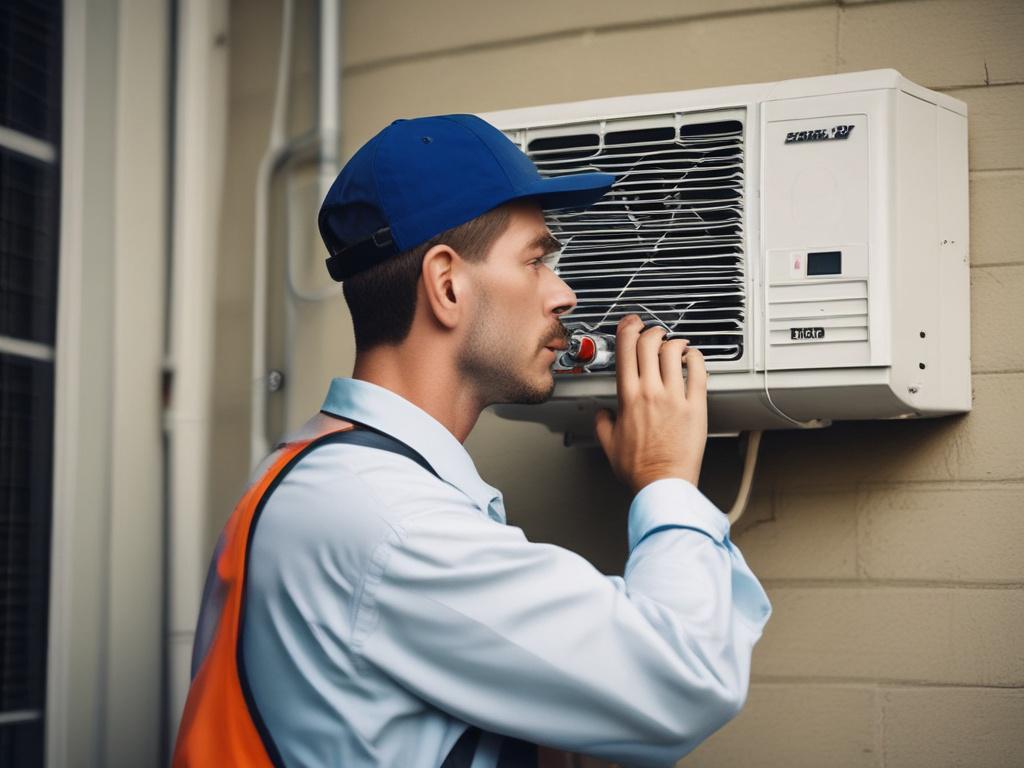
Your HVAC system works tirelessly to keep your home comfortable year-round, but like any complex mechanical system, it can develop problems that demand immediate attention. While some minor issues can wait for scheduled maintenance, certain problems require swift action to prevent expensive damage, safety hazards, or complete system failure.
Understanding these critical warning signs can save you thousands of dollars in repair costs and keep your family safe and comfortable.
When your HVAC system suddenly stops working entirely, this represents an emergency that requires immediate professional attention. A complete shutdown can stem from various causes, including electrical failures, blown fuses, tripped circuit breakers, or thermostat malfunctions. However, more serious underlying issues like compressor failure, refrigerant leaks, or motor burnout can also trigger a total system failure.
The urgency stems from the cascading effects of leaving the problem unaddressed. During extreme weather conditions, a non-functioning system puts your family's health and safety at risk. Additionally, some causes of system shutdown, like electrical issues, can create fire hazards if left unrepaired. Even in moderate weather, delaying repairs can allow minor problems to evolve into major component failures that require complete system replacement.
Refrigerant leaks represent one of the most serious HVAC emergencies due to their environmental impact, health risks, and potential for extensive system damage. Signs of refrigerant leaks include hissing sounds near the outdoor unit, ice formation on the evaporator coils during the cooling season, reduced cooling capacity, and unusually high energy bills.
Beyond the immediate performance issues, refrigerant leaks can cause the compressor to work harder than designed, leading to premature failure of this expensive component. Modern refrigerants are also environmentally regulated substances that require proper handling and disposal. Attempting to operate a system with low refrigerant levels can cause the compressor to overheat and fail completely, turning a moderate repair into a major system replacement.
Unusual odors emanating from your HVAC system should never be ignored, as they often indicate potentially dangerous conditions. Burning smells can signal overheating electrical components, melting wire insulation, or motor problems that could lead to fires. Musty or moldy odors might indicate moisture problems that can compromise indoor air quality and promote dangerous mold growth throughout your ductwork.
Chemical odors could suggest refrigerant leaks or problems with heat exchangers, while rotten egg smells might indicate gas leaks in furnace systems. Each of these scenarios poses immediate health and safety risks that require professional diagnosis and repair. Continuing to operate the system while these odors persist can worsen the underlying problem and create dangerous conditions for your family.
Electrical issues within HVAC systems create both immediate safety hazards and the potential for expensive component damage. Frequently tripping circuit breakers, flickering lights when the system starts, burning smells from electrical panels, or visible sparking around HVAC components all indicate serious electrical problems requiring immediate attention.
Electrical issues can stem from faulty wiring, overloaded circuits, failing capacitors, or worn electrical connections. These problems don't just affect system performance – they create genuine fire risks that endanger your entire property. Additionally, electrical problems often cause voltage irregularities that can damage expensive components like compressors, motors, and control boards, turning a wiring repair into a major system overhaul.
Significant water leaks around your HVAC system indicate problems that can quickly escalate into major property damage and health hazards. Air conditioning systems naturally produce condensation, but excessive water, backed-up drainage, or leaks in unexpected areas suggest serious problems with drain pans, condensate pumps, or drainage lines.
Water damage from HVAC leaks can compromise structural elements, promote mold growth, and damage flooring, walls, and personal belongings. In heating systems, water leaks might indicate problems with heat exchangers or boiler components that could affect system safety and efficiency. The moisture created by ongoing leaks creates ideal conditions for mold and mildew growth, which can spread throughout your home's air distribution system and create serious indoor air quality problems.
When you encounter any of these critical HVAC issues, resist the temptation to attempt DIY repairs or delay professional service. Contact Dr. Kool Cooling & Heating immediately to diagnose and address the problem before it escalates.
 Jack C. Hvac
Jack C. Hvac